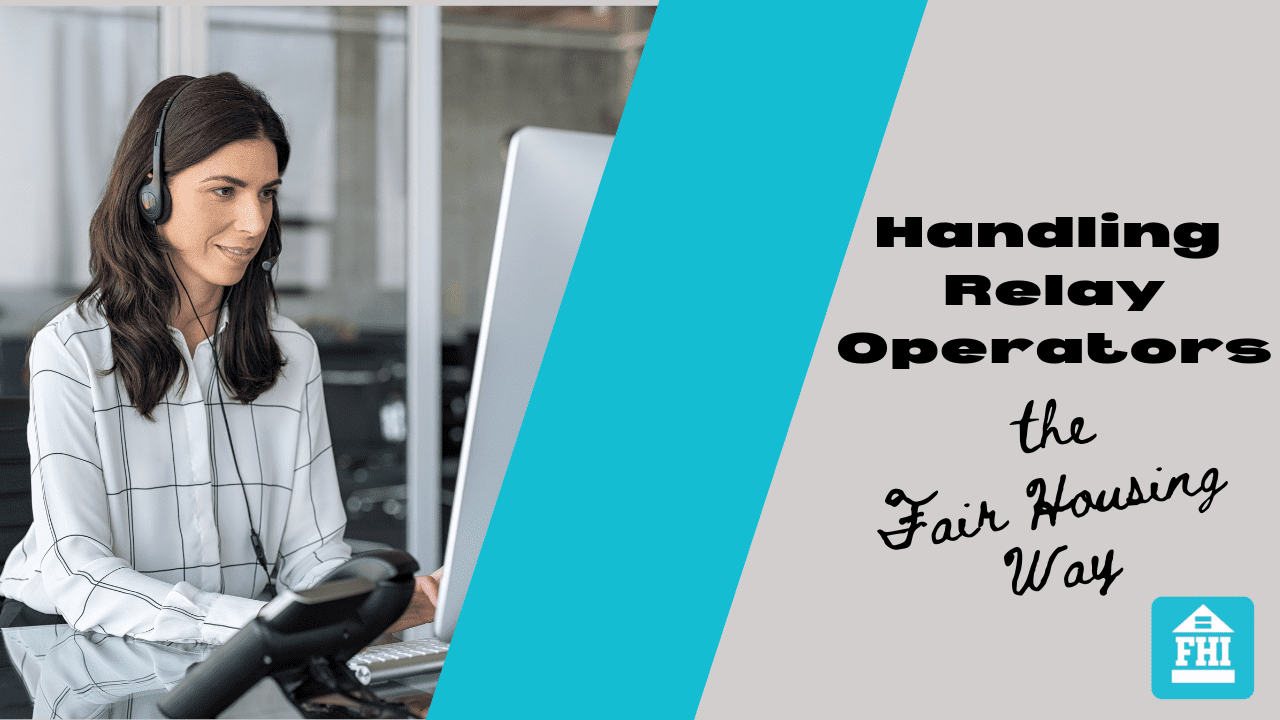Handling Relay Operators the Fair Housing Way

What Are Relay Operator Calls?
While technology is evolving to help people with communication disabilities, the use of relay operator calls still exists. Relay operator calls are a service that is used by hard-of-hearing or deaf individuals. It employs the use of a Communication Assistant or Relay Operator who relays the call between two parties by reading out what the hard-of-hearing or deaf individual types using a specific machine while typing back whatever the speaking individual says. While this form of communication can be helpful, it is also time-consuming, posing a problem for a very busy leasing office.
Fair Housing Relay Operator Testing
A recent testing campaign shared some pretty concerning results. Nearly half of the properties tested did not know how to correctly respond to or handle relay operator calls. Even worse were some of the comments that were recorded, such as, “I don’t have time for this” or “I don’t know what this is about,” followed by the leasing agent hanging up the phone.
As a result of this campaign, multiple lawsuits were filed, since refusing to talk to a relay operator and provide information is discriminatory and denying access to housing because of a disability.
Proper Fair Housing Training Is a Must
The relay operator testing campaign clearly highlights the need for training. That training needs to target specific situations like this. Training should include practicing the many different situations that can arise when handling a relay operator call.
For example, how would you or your staff handle being on a relay call and having another prospect walk into the leasing office looking for information? The easy thing may seem to be to tell the relay operator that they will have to call back, but that could be perceived as discrimination, that the leasing agent would rather work with a person without disabilities. Best practices would be to quickly and respectfully tell the person that walked in that you are on a call that may take some time and that you will be with them as soon as possible.
Another pitfall that proper training can help you avoid is over-explaining or offering information without it being requested. For instance, just because you are talking to a hard-of-hearing or deaf person, you do not need to launch into describing your units that accommodate their disability. Go about your regular presentation and only offer this information if asked.
Work with your team to brainstorm other situations that might arise and work together to find fair housing-friendly solutions.
Avoid a Fair Housing Complaint By Being Compliant
Remembering to treat every person that walks in, calls, or contacts your leasing office the same way will aid greatly in maintaining compliance.
Although relay operator calls may take a considerable amount of time, and we may already be very busy, these calls need to be handled in a timely and respectful manner. Be sure to give all the same information that you would for any other call, regardless of how long that might take, so as to avoid a possible fair housing complaint.
Even though the technology is changing and relay calls may be happening less frequently, proper protocols on how to handle them still need to be part of your fair housing training program.















 Accessibility
Accessibility